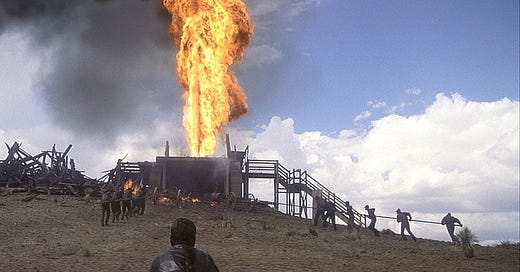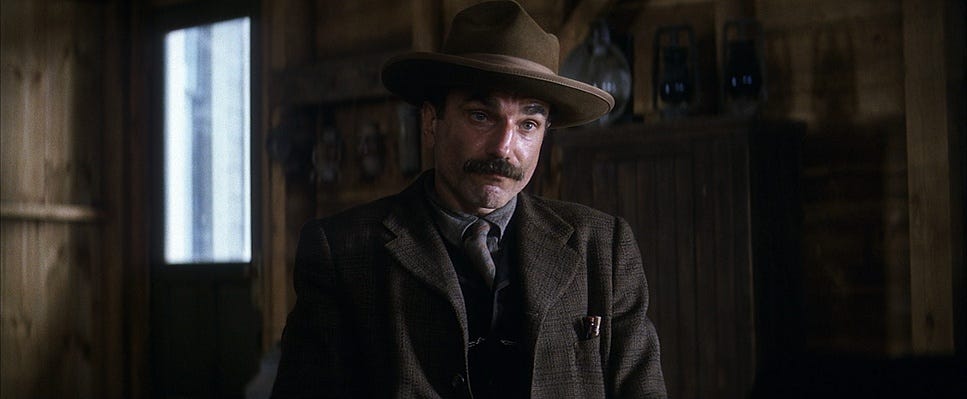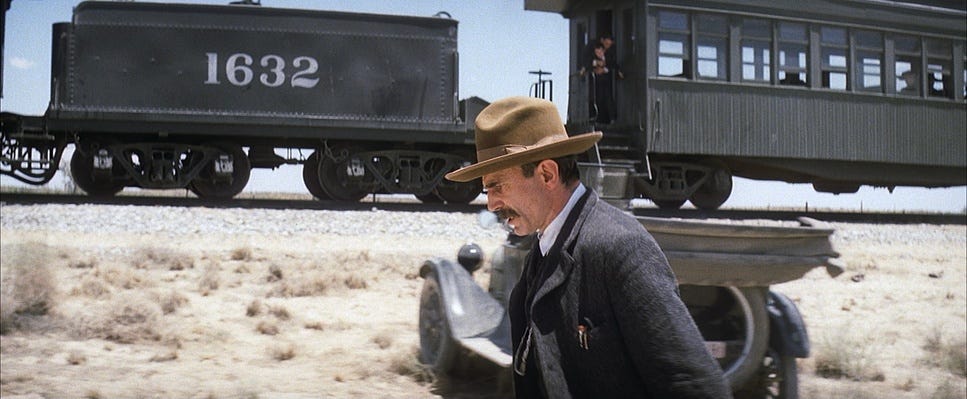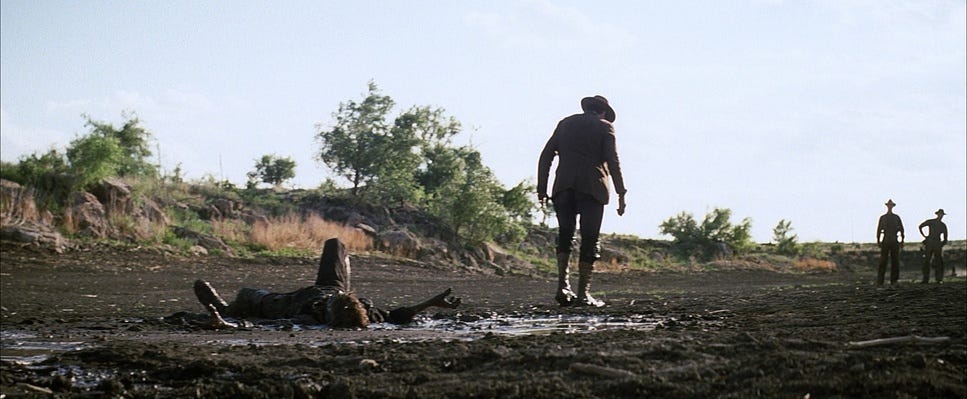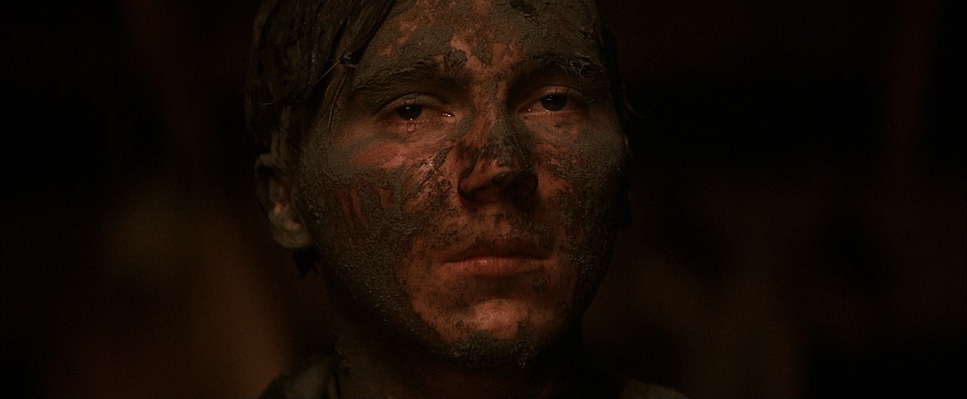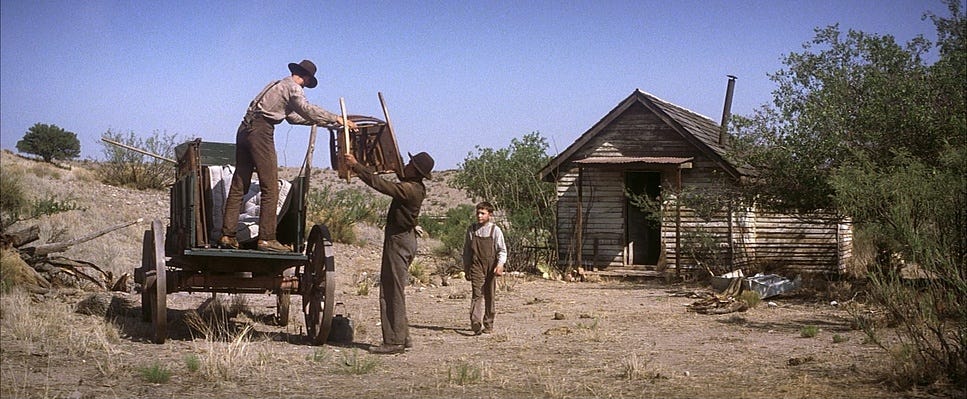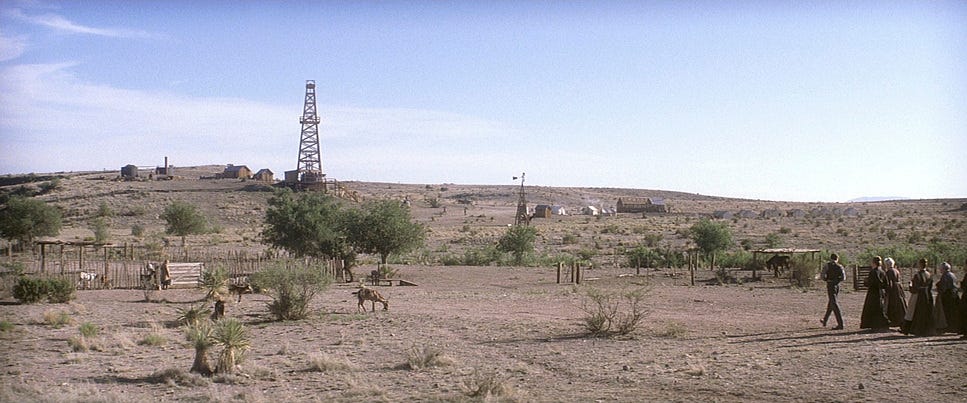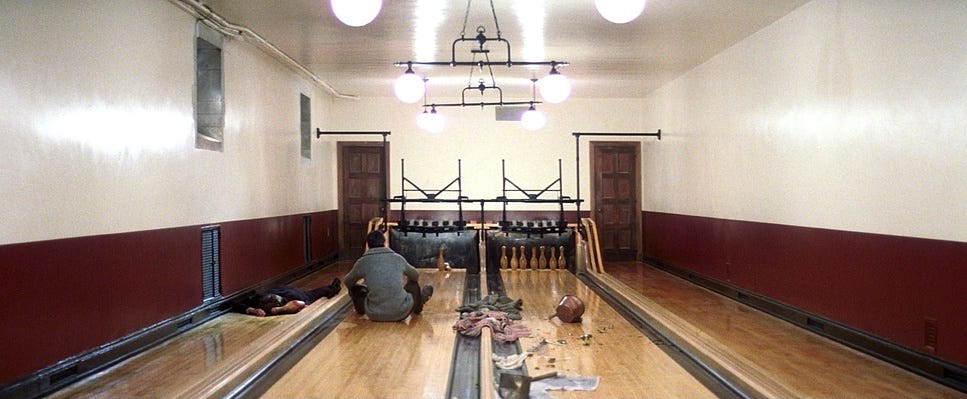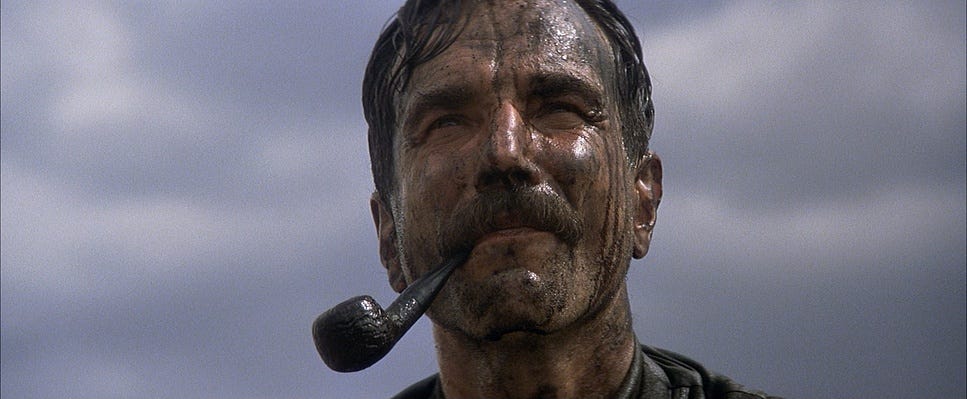Reel Breakdown #10: THERE WILL BE BLOOD (2007) ~ Daniel Plainview Is the Devil... and We Keep Making Him CEO
What THERE WILL BE BLOOD Gets Right About American Greed and Power.
There’s no more excellent cinematic sermon on the ruthless reality of American capitalism than There Will Be Blood (2007).
It’s not just a movie—it’s a mirror.
A long, slow, gut-punching mirror held up to our country’s veins, clogged with oil and ambition.
Paul Thomas Anderson doesn’t give us a lesson; he gives us revelation.
This isn’t just about a man digging in the dirt—this is the dirt.
This is the American Dream stripped down, bled out, and lit on fire.
Let’s Break it down.
Daniel Plainview Lives On
Daniel Day-Lewis doesn’t play Daniel Plainview—he becomes him.
Yeah, Lincoln was powerful. But we don’t know Lincoln. We do know Daniel Plainview.
You’ve met him.
You’ve worked for him.
You’ve been screwed over by him. We see him today in the boardrooms and billionaires of our generation—Bezos, Musk, Jobs, Gates—the new titans with their death grips on innovation and influence.
You don’t get to the top by being nice. You get there by carving your competition out with a smile and shaking hands on their graves.
And There Will Be Blood understands this in its bones.
No Words, Just Power
The opening ten minutes?
No dialogue.
Just screeching, haunting synth from Jonny Greenwood and a man crawling up from the earth’s guts.
That’s how you start a movie about American industry—silent, brutal, mechanical. It’s genius. Anderson and Greenwood immediately set the tone: you won’t be spoon-fed. You’re going to sit there and feel it.
This isn't a historical drama.
This is myth-making.
And the myth is this: all great empires are built on suffering.
We watch Plainview strike oil and claim a son—H.W.—not out of love but because it’s useful.
It softens him.
It makes him appear “fatherly” to the townspeople he needs to swindle.
But when H.W. is injured in an explosion, Plainview tosses him aside like faulty equipment.
He didn’t come from his blood, and love has to earn its keep in the world of Plainview.
The Cost of the Crown
That moment—where Plainview watches his own son go deaf and doesn’t even flinch—is everything.
It’s the cost of chasing the crown.
It’s the American Dream when the dreamer loses his soul chasing it. Y
ou can practically hear Adam Smith’s invisible hand giving the middle finger to morality.
And speaking of morality, enter Eli Sunday—the preacher.
The spiritual salesman.
The “man of God” who represents religion as capitalism’s shadow puppet. One wants to save souls.
The other wants to own land.
And the sick twist is that they’re both running the same hustle. One in a tent with holy water.
The other is in a dusty shack with oil maps. God and oil, church and capitalism—they’re two sides of the same American coin, and There Will Be Blood flips it over and over until it lands face-down in the mud.
Anderson knows that America has always been a duel between money and morality. The film takes place in the early 20th century but is timeless.
Every frame, every line of dialogue, echoes in today’s headlines. Oil tycoons become tech lords. Tent revivals become political rallies. The hustle never dies—it just changes costume.
And Plainview?
He’s the blueprint for the predator dressed as a visionary.
The one who’ll tell you it’s about legacy, community, or God—but it’s always been about power.
The loneliness of Plainview is essential, too. It’s not just a byproduct of his ambition—it’s the fuel.
He isolates himself because people get in the way.
Trust gets in the way.
Even love gets in the way. He says straight up: “I see the worst in people.” He hates competition because it reminds him he’s not God.
And he ends up in a shallow grave when someone tries to get close—like his fake brother Henry.
Family?
Fraud.
Faith?
A joke.
Connection?
A liability.
But here’s the kicker: we still kind of admire him. That’s the American sickness. We love a winner—even when he’s covered in blood. He’s brutal. He’s obsessed. He’s broken.
But he wins.
He drinks the milkshake. He empties the well. And that’s what we’ve been told to do since we were kids: win at all costs. Plainview just doesn’t hide the price.
Robert Elswit’s cinematography captures it all like a painter watching a civilization collapse in slow motion. Wide shots stretch across the desert like a prayer gone unanswered.
The camera lingers, never rushing, always watching.
The palette is dirt, fire, and shadow—like God turned away from this part of the world and left it to burn.
There’s no nostalgia—just grit.
And that final scene—Plainview, half-mad, bloody, rich beyond measure but completely, utterly alone—might be one of the most honest endings ever put to screen. “I’m finished,” he says.
Not as a confession.
As a declaration.
He’s not defeated.
He’s just done.
He got everything he wanted.
And now there’s nothing left.
There Will Be Blood isn’t a story about oil.
It’s a story about us.
The way we worship profit.
The way we confuse success with virtue.
The way we let ambition rot our empathy until all that’s left is strategy. It’s American cinema at its most mythic and most damning.
It hurts to watch, but it sticks with you like the best truths.
So yeah—there’s blood. There’s always blood. Because when power is the prize, humanity’s the cost.

